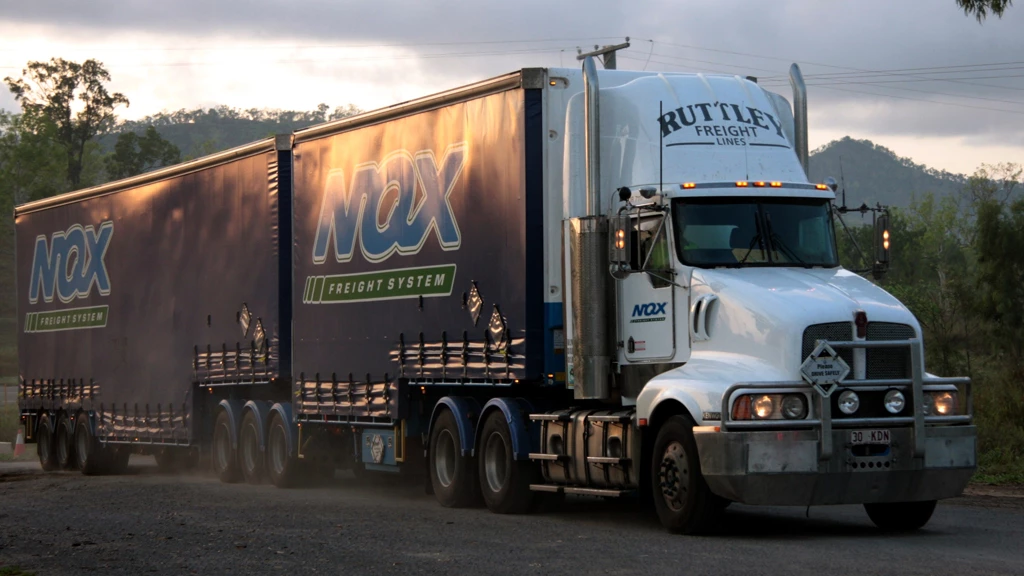While there are fuel consumption standards for passenger cars, there is no such regulation of medium- and heavy-duty vehicles in the U.S. With such vehicles accounting for about 26 percent of the transportation fuel used in the U.S. regulators are looking to establish fuel economy standards for these vehicles in the next few years. Now a new U.S. report has been released recommending the best ways to measure and regulate fuel economy for these vehicles, and assess technologies that could improve it. Amongst its findings, the report says that some vehicles could cut their fuel use by about 50 percent through the use of a combination of technologies.
The congressionally mandated report was put together by the National Research Council (NRC) at the request of the National Highway Traffic Safety Administration (NHTSA). It was in response to legislation passed in Congress in 2007 requiring the U.S. Department of Transportation to establish fuel economy standards for medium- and heavy-duty vehicles for the first time in history.
The committee estimated the improvements that various technologies could achieve over the next decade in seven vehicle types. The report found that:
- using advanced diesel engines in tractor-trailers could lower their fuel consumption by up to 20 percent by 2020, and improved aerodynamics could yield an 11 percent reduction;
- hybrid powertrains could lower the fuel consumption of vehicles that stop frequently, such as garbage trucks and transit buses, by as much 35 percent in the same time frame;
- while the cost of making these improvements would be passed on to vehicle purchasers, the report notes that many of these suites of technologies would pay for themselves even at today's energy prices, under the committee's assumptions;
- using a combination of technologies tractor-trailers could cut their fuel use by about 50 percent by 2020 for about US$84,600 per truck, which would be cost-effective over ten years with gas prices of at least US$1.10 per gallon;
- fuel use of motor coaches could be lowered by 32 percent for an estimated US$36,350 per bus, which would be cost-effective if the price of fuel is US$1.70 per gallon or higher;
- for other vehicle classes, the financial investments in making improvements would be cost-effective at higher prices of fuel;
- the NHTSA should regulate the final-stage vehicle manufacturers rather than component makers, as the former has the greatest control over the vehicle's design;
- the adoption of nontechnical methods to lower fuel consumption, such as providing incentives to train vehicle operators in efficient driving techniques, could result in fuel savings of anywhere from 2 percent to 17 percent.
Because the miles-per-gallon measure used to regulate the fuel economy of passenger cars is not appropriate for medium- and heavy-duty vehicles, which are designed above all to carry loads efficiently, the report suggested setting fuel consumption standards based on a measure that accounts for the amount of freight or passengers carried by the vehicles.
Instead, any regulation of medium- and heavy-duty vehicles should use a load-specific fuel consumption (LSFC) metric that reflects the efficiency with which a vehicle moves goods or passengers, such as gallons per ton-mile, a unit that reflects the amount of fuel a vehicle would use to carry a ton of goods one mile.
While regulating medium- and heavy-duty vehicles will be more complicated than it is for passenger cars because of the variety of vehicles and their differing tasks and terrains, the barriers are not insurmountable, the report says. Japan regulates the fuel economy of these vehicles, and both the European Union and the state of California are developing standards.
However, one way to avoid the complexity of regulating different types of vehicles suggested by the report would be to impose a fuel tax, which would induce firms to optimize the fuel-efficiency of their operations. The report urges Congress to consider this approach. Another alternative approach - applying a cap-and-trade system to trucking companies similar to the one that Congress is considering as a way to lower CO2 emissions - would similarly provide these companies with an incentive to adopt fuel-saving technologies and operational methods.
The report is intended to influence the choices that will be made over the course of the next few years in establishing the regulatory design for medium- and heavy-duty vehicle fuel consumption standards for the next several decades.
Copies of the full report, “Technologies and Approaches to Reducing the fuel Consumption of Medium and Heavy-Duty Vehicles,” are available from the National Academies Press.




